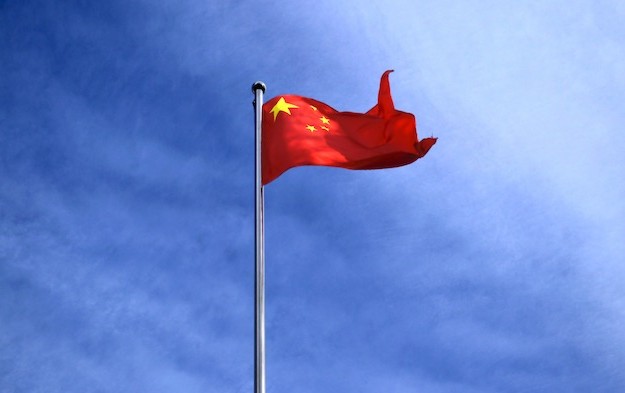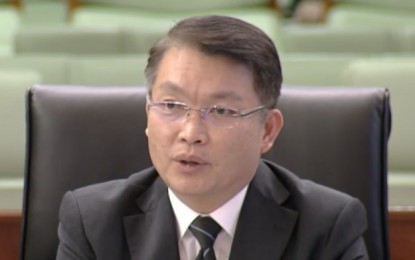China asserts destination blacklist for overseas gambling
Aug 26, 2020 Newsdesk Latest News, Rest of Asia, Top of the deck

China’s Ministry of Culture and Tourism said in a Wednesday statement that it and “relevant departments” had “jointly established a ‘blacklist’ system for cross-border gambling tourist destinations”. The announcement didn’t list the places concerned.
But the ministry added that “casinos in overseas cities attract Chinese tourists to go abroad for gambling activities, disrupting the order of China’s outbound tourism market, and endangering the personal and property safety of Chinese citizens”.
The ministry further noted that its announcement was in the context of an “increased convenience in exchanges,” that had “boosted” the “number of Chinese citizens travelling abroad”.
JP Morgan Securities (Asia Pacific) Ltd said in a Wednesday note on the gambling-destination watchlist announcement: “We read this as a gentle warning to emerging jurisdictions in Southeast Asia – such as Cambodia, the Philippines or Vietnam, where proxy/video bets are allowed – and possibly to Australia, where a vast majority of VIP demand comes from China, predominantly via junkets.”
The term “proxy/video bets” referred respectively to where either a person physically present in a casino places a bet at a live-dealer table on behalf of a person directing them from outside, via a telephone or other device; or where a jurisdiction allows live video streaming of casino games to online players.
Last year, Cambodia said it had stopped issuing new permits for firms wishing to provide “online gambling” services and was phasing the practice out, at the expiry of existing ones.
The Philippines currently licenses and hosts on its territory so-called Philippine Offshore Gaming Operators that offer video-streamed games. The Chinese government asked the Philippines in August last year to ban “all online gambling” services originating from that country, but a Philippine official pointed out it was a sovereign decision for the nation.
JP Morgan analysts DS Kim, Derek Choi and Jeremy An, added in their assessment of China’s Wednesday announcement: “At this stage, it’s difficult to know exactly how the [Chinese] government will clamp down and what it means by ‘blacklisting’, but we suspect capital flows through underground banks and agents, as well as junkets’ promotion of these overseas markets, will be heavily scrutinised.”
The institution added that markets such as Singapore and “to a lesser extent” South Korea and Malaysia “should fare better given limited exposure to junkets”.
The JP Morgan team further noted: “We understand Macau is not considered as an ‘overseas gambling market’ by the central government, as Macau is part of China, and gambling is perfectly legal in the city anyway.”
John DeCree, an analyst at Union Gaming Securities LLC, said in a Wednesday note: “While the blacklist would exclude Macau, as the SAR is part of China, the potential disruption to the junket system would likely hinder a [Macau] VIP recovery in the near-term. Many junkets operate both in Macau and the offshore jurisdictions…”
In June, China’s Ministry of Public Security revealed it had launched a web-based platform, in Chinese and English, for the public to report “cross-border gambling” as well as “telecom frauds”.
Aside from covering online gambling – a constant irritation to the Chinese authorities when aimed at its citizens – the latter platform has a section to “report crimes related to a physical casino”.
(Updated 9.26am, Aug 27)
Related articles
-
 Macau’s Jan-Oct ex-Guangdong...
Macau’s Jan-Oct ex-Guangdong...Nov 21, 2024
-
 Future of gaming is the online format:...
Future of gaming is the online format:...Nov 20, 2024
More news
-
 Macau to get 36mln visitors in 2025:...
Macau to get 36mln visitors in 2025:...Nov 21, 2024
-
 Star Entertainment clinches US$130mln...
Star Entertainment clinches US$130mln...Nov 21, 2024
Latest News
Nov 21, 2024
Macau’s 2025 visitor tally could reach 36 million, or a circa 9-percent gain on this year’s projected 33 million. So said Lei Wai Nong (pictured in a file photo), the city’s Secretary for...Sign up to our FREE Newsletter
 (Click here for more)
(Click here for more)
Pick of the Day
”As we navigate the final steps of the licensing process, we remain confident in our ability to align with Brazil’s regulatory requirements”
Eusebio Tanco
Chairman of DigiPlus Interactive
Most Popular
 Gaming technology firm IGT reports hacking incident November 21, 2024
Gaming technology firm IGT reports hacking incident November 21, 2024  US$30bln 2025 GGR target achievable for Macau: CE November 19, 2024
US$30bln 2025 GGR target achievable for Macau: CE November 19, 2024  Marina Bay Sands projects 40pct EBITDA leap post extension November 20, 2024
Marina Bay Sands projects 40pct EBITDA leap post extension November 20, 2024  Macau big-event outdoor venue gets trial run Dec 28: CE November 20, 2024
Macau big-event outdoor venue gets trial run Dec 28: CE November 20, 2024  Future of gaming is the online format: Pagcor chairman November 20, 2024
Future of gaming is the online format: Pagcor chairman November 20, 2024








